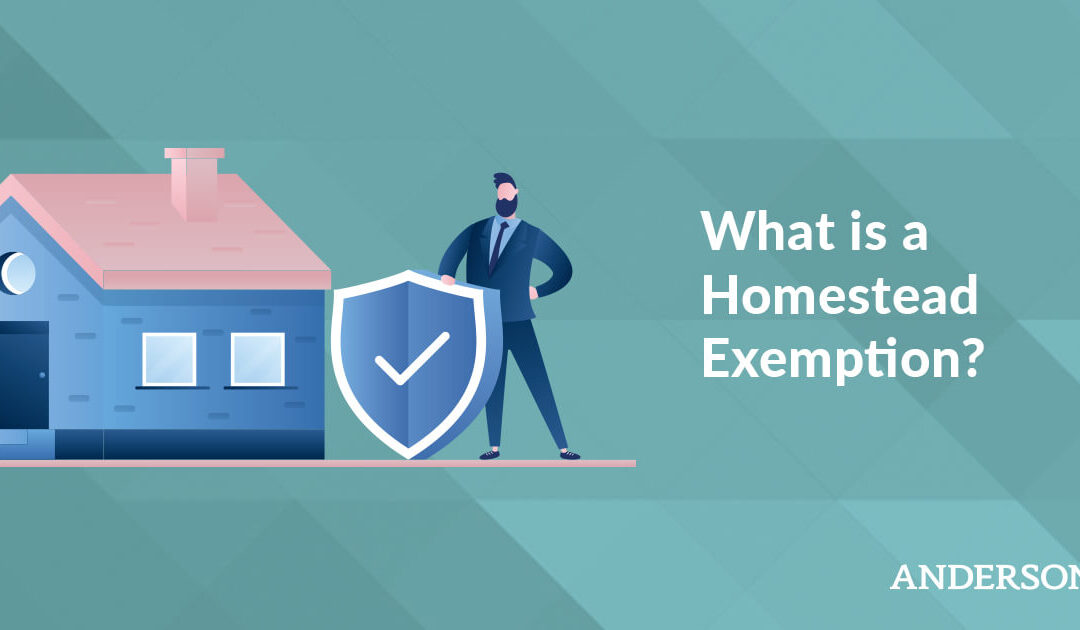Death and taxes are parts of everyday life. Thankfully, you can prepare for both with the right financial strategies that can help you steer clear of impending economic hardship. A homestead exemption can ensure your spouse has a place to live after you pass that’s safe from creditors and property taxes. Keep reading to learn what a homestead exemption is and why it’s essential to your overall estate plan.
What Is a Homestead Exemption?
The homestead exemption protects you from circumstances that might arise after the death of your spouse or bankruptcy. Most U.S. states, except New Jersey and Pennsylvania, have legal provisions that can help shield your primary residence from some creditors during these stressful times. However, the most important thing to remember is they only apply to primary residences. You cannot claim an exemption for rental or investment properties.
The program can also help minimize a homeowner’s property taxes for the surviving spouses by providing ongoing relief on a graduated scale in some states and keep seniors from getting priced out of neighborhoods as property values rise. The homestead exemption is designed to provide both physical shelter and financial protection. However, the rules and protection limits vary by location.
How the Exemption Works
Some homestead exemptions offer a flat value reduction of your home’s taxable value, while other programs calculate the savings using a percentage. Depending on your home’s value, one system might be better than the other for securing the greatest reduction in tax liability. The statutes also vary regarding how much protection a homestead exemption provides against creditors.
Tax & Asset Protection Workshop
Learn about Real Estate & Asset Protection at our next
FREE LIVE STREAM
Protection From Creditors
Some states, such as Florida and Texas, provide a homestead exemption with acreage limits but unlimited financial protection against unsecured creditors. Massachusetts and Rhode Island set their state exemption limit at $500,000. However, it’s more common to see creditor protection limits between $30,000 and $500,000, depending on your location, with most states at or below $50,000.
This exemption doesn’t apply to secured lenders, such as the bank where you got your mortgage. It only protects you from unsecured creditors who want to satisfy their claims against your assets. The protection limits are also for the homeowner’s equity, not its fair market value. That amount is the value minus the mortgage balance. For example, if your primary residence is worth $300,000 and you have a $100,000 loan on your property, you’re protected for up to $200,000 — or your state’s limit.
A creditor cannot force you to sell if the threshold is higher than your equity. However, if the homestead’s equity exceeds that amount and your creditors make you sell the home, you might still be entitled to a portion of the proceeds if the buyer pays more for your property than what you owe the lenders.
Protection From Bankruptcy
Federal bankruptcy law will shield your home from sale if its equity doesn’t exceed $25,150. That amount applies to cases filed after April 1, 2019. If you submitted your bankruptcy before that date, the exemption is $23,675.45. However, your state might have adopted a more favorable limit than the federal one, so do your research to find out.
Homeowners who declare bankruptcy in New Jersey or Pennsylvania are in luck. You can get protection even though the states have no homestead exemption. However, homestead exemptions only protect against unsecured creditors. In addition, bankruptcy might have tax repercussions, and this protection won’t prevent foreclosure.
Property Tax Reduction
Property taxes are based on the assessed value of your home. Once the county determines this figure, it’s multiplied by the current property tax rate to calculate your annual bill. This rate fluctuates each year depending on your area. If your county needs more funds, it might increase property tax rates accordingly, or residents might vote on a rate change. The good news is you can appeal the assessor’s value if you think it’s too high or ask for an exemption.
A homestead exemption can also save you a hefty sum on your property tax bill. It reduces your residential property’s value in the assessor’s eyes. For example, if you live in Hawaii and you qualify, you can get up to a $100,000 exemption. If your home is worth $250,000, your tax bill is assessed on the reduced value, or $150,000. That means if your property tax rate is 2%, you’ll save $2,000 a year.
Who Is Eligible for a Homestead Exemption?
You can apply for a homestead property tax exemption if you own a primary residence and want to reduce the property tax bill or protect your home from unsecured creditors. Some states offer this benefit to every homeowner. However, most states have specific requirements, including how long you’ve been a resident. You must live in Maine, for instance, for at least a year to get a $25,000 exemption.
The basic eligibility requirements include residents who are low-income, permanently and totally disabled, senior citizens, veterans, or first responders. In addition to basic eligibility criteria, there might be a limit on the value of your home. For example, a qualifying homeowner under 65 in Alabama gets a homestead exemption of up to $4,000, while seniors have no exemption limit.
How Do I Apply for a Homestead Exemption?
Your state treasury office or local tax assessor’s website are the first places we recommend going for specific information on homestead tax exemptions in your area. Keep in mind that some states offer residents automatic benefits, while others require homeowners to file applications to receive exemptions. You might also have to submit your information within your area’s deadline, which is often in March. Fortunately, you don’t have to pay a fee to apply. Gather your documentation before you begin, including:
- Driver’s license or other proof of age.
- Military ID and discharge papers.
- Copies of tax returns.
When you’re facing hardships from a debilitating illness or a death in the family, a homestead tax exemption can offer relief from property taxes and protection from creditors. If you’re concerned about the future of your assets, contact us for help. We are the estate and tax planning specialists you want to help you navigate your retirement and beyond. Our team of advisors will help you get started today.
Free Strategy Session with an Anderson Advisor
Receive a detailed risk assessment to assist in lowering problem areas that could wipe out all of your assets with one wrong move. Speak with an Anderson Professional Advisor to get your FREE Strategy Session. Limited-Time Offer: FREE (a $750 value.)
















